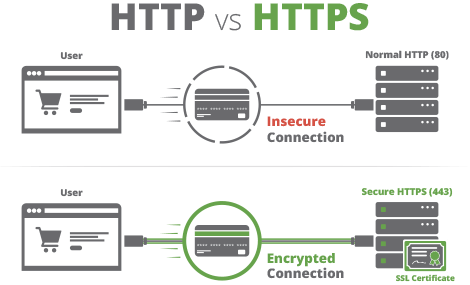A Secure Socket Layer (SSL) is a security protocol developed by Netscape in the 1990’s for sending information securely (encrypted) over the Internet. Once upon a time, websites could only use SSL only even then only used it for secure areas of their websites, such as user login pages or online checkout. Today, SSL has been deprecated (replaced) by a new standard for online encryption of website traffic known as Transport Layer Encryption. This protocol replaced SSL and has itself gone through a number of iterations. The current standard is TLS version 1.3 and all websites should be migrating to it as quickly as possible.
Websites used SSL and now TLS to encrypt all data in motion between the web browser and destination website. This prevents hackers from intercepting and reading the transmissions. You will know you’re protected by SSL or TLS whenever you visit a website and your browser URL Bar displays a Lock symbol.
SSL and TLS accomplish their encryption by use of special digital certificates which tie back to the identity and owner of the company or merchant in question. This allows online shoppers to trust that the website is secure and reliable.
Source: TechTerms – SSL, TechTerms – SSL Certificate
Additional Reading: What to do With SSL Certificate When Merging Domain
Related Terms: Encryption, Hackers, Transport Layer Security (TLS)

